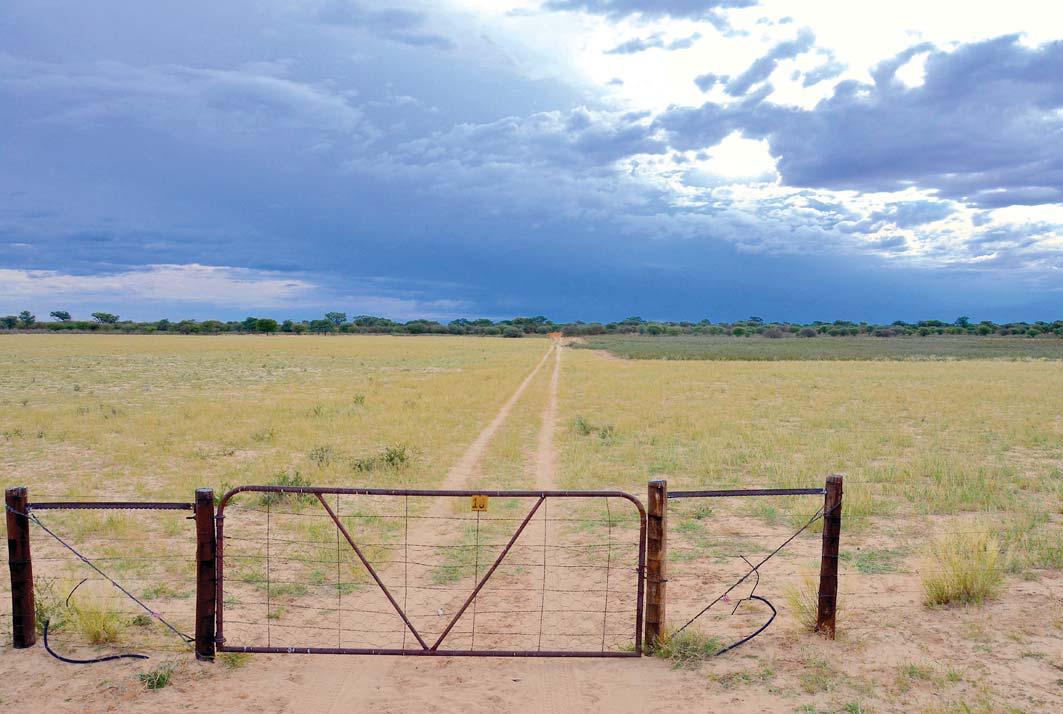Denemek ALTIN - Özgür
Direct transfers of property to third parties under the Expropriation Bill
Farmer's Weekly
|May 24, 2024
Dr Anthea Jeffery, head of Special Research at the South African Institute of Race Relations, says that President Cyril Ramaphosa must refer the Expropriation Bill of 2020 back to the National Assembly, due to the lack of public involvement in the writing of the Bill.

The Expropriation Bill of 2020 (the Bill) was adopted by the legislature on 27 March 2024 and needs only President Cyril Ramaphosa's assent to become law. Yet Parliament failed to 'facilitate public involvement' in the lengthy legislative process on the Bill. It also omitted to bring the content of the Bill into line with the Constitution. This means - as the South African Institute of Race Relations (IRR) has pointed out in a letter and accompanying petition to the president - that Ramaphosa has a constitutional obligation not to sign the Bill. Instead, he must refer it back to the National Assembly for reconsideration.
A NEW CONCEPT OF 'EXPROPRIATION' INTRODUCED INTO THE BILL
Many clauses in the Bill remain unconstitutional and need to be redrafted along the lines the IRR has long proposed. Some, however, are new. One key change-added without public consultation - is particularly important because it allows expropriations of land, water rights and other assets directly to third parties. In doing so, it effectively introduces a new concept of expropriation. This conflicts with the definition earlier included. In addition, the change is likely to have major ramifications for commercial farmers.
The first definition was inserted into Clause 1 (the 'Definitions' section) when the Bill was first released for public comment. It defines 'expropriation' as 'the compulsory acquisition of property for a public purpose or in the public interest by an expropriating authority'. (Such an authority is generally an organ of state with the power to expropriate under the Bill or other legislation.) This definition comes from the Constitutional Court's judgment in the Agri SA case in 2013.
Bu hikaye Farmer's Weekly dergisinin May 24, 2024 baskısından alınmıştır.
Binlerce özenle seçilmiş premium hikayeye ve 9.000'den fazla dergi ve gazeteye erişmek için Magzter GOLD'a abone olun.
Zaten abone misiniz? Oturum aç
Farmer's Weekly'den DAHA FAZLA HİKAYE
Farmer's Weekly
Cash flow budgets: keeping farmers in control of liquidity, risk, and their survival
Profit doesn't guarantee a farm's survival - cash does. Cobus du Plessis explains why cash flow budgets are one of the most important yet underused financial tools on South African farms.
5 mins
February 27 - March 06, 2026

Farmer's Weekly
The toast of the Navy
The incredible story of the World War II-era Great Dane dog Nuisance being enlisted in the Royal Navy is well documented. Graham Jooste shared some entertaining anecdotes involving the canine shipmate.
6 mins
February 27 - March 06, 2026
Farmer's Weekly
Healthier soils deter destructive locusts
Locust swarms remain a serious global threat, capable of devastating crops, livelihoods and local economies across vast regions.
1 min
February 27 - March 06, 2026
Farmer's Weekly
Wheat crisis dominates Grain SA regional meetings
As the ongoing wheat crisis continues to erode producers' margins, emotions ran high at Grain SA's regional meeting in Moorreesburg in the Western Cape.
2 mins
February 27 - March 06, 2026

Farmer's Weekly
A FARMER'S EXPERIENCE
Street Wallet has been a game-changer for Mario Athanasopoulos, hydroponic production consultant and owner of Green City Farms.
1 mins
February 27 - March 06, 2026

Farmer's Weekly
Kesieberg Merino Stud Production Sale
The Kesieberg Merino Stud Production Sale was held on the farm Leeuwfontein on 4 February on behalf of Willie and Herman Henning.
1 min
February 27 - March 06, 2026

Farmer's Weekly
Not cheaper, just different: what you should know about farming in Mozambique
Although Mozambique is often viewed as a cheaper, easier farming location than South Africa, cost comparisons tell a more complex story. But while cross-border production presents real challenges, it also offers opportunities for complementary trade, diversification and regional food security, particularly when it comes to subtropical crops such as bananas.
10 mins
February 27 - March 06, 2026

Farmer's Weekly
The all-rounder anchoring South Africa's beef value chain
Louis Steyl, CEO of the Bonsmara Cattle Breeders' Society of South Africa, spoke to Octavia Avesca Spandiel about how the versatile Bonsmara breed anchors the country's beef value chain, delivering balanced performance, reproductive and feed efficiency, and carcass traits across extensive and intensive systems.
6 mins
February 27 - March 06, 2026

Farmer's Weekly
THE HITCHING POST
I'm a 60-year-old white woman who loves camping, animals, the outdoors, and watching sport.
2 mins
February 27 - March 06, 2026
Farmer's Weekly
Foot-and-mouth disease in pigs
Recently, the radio news mentioned an outbreak of foot-and-mouth disease (FMD) in pigs in South Africa.
2 mins
February 27 - March 06, 2026
Listen
Translate
Change font size
